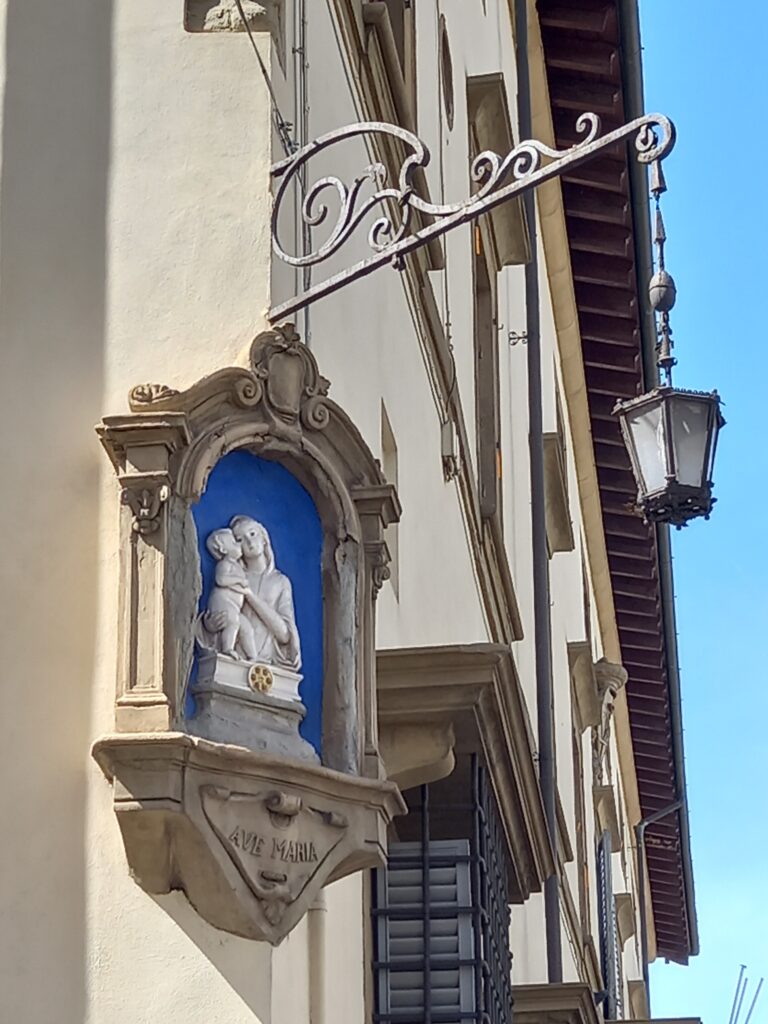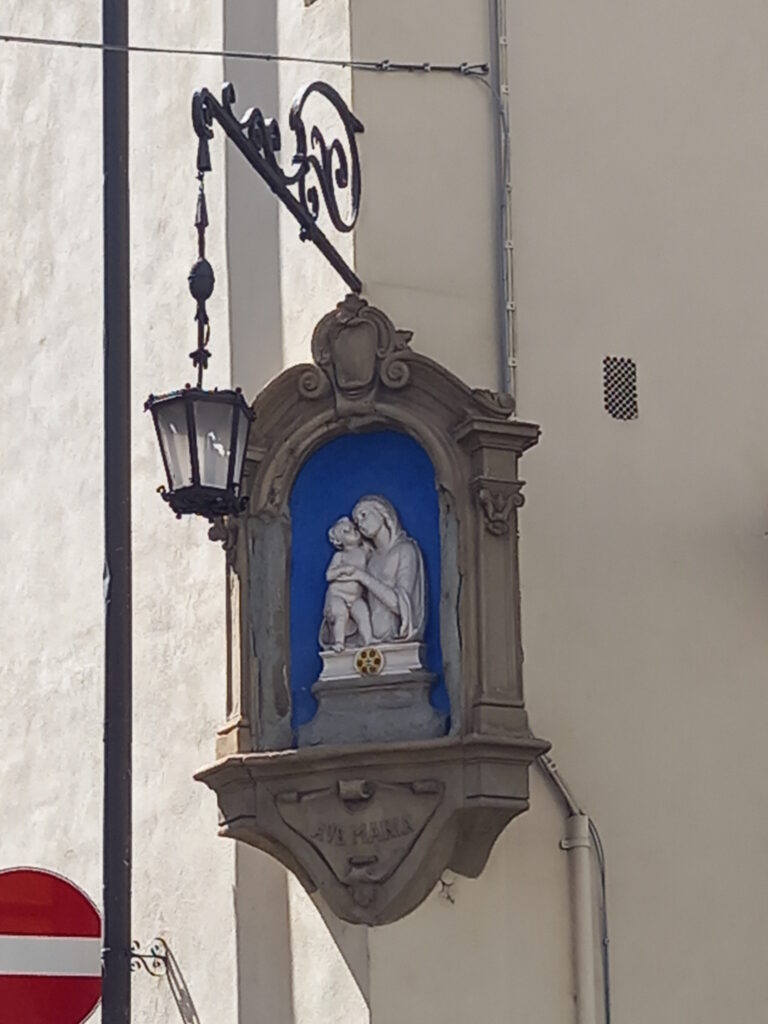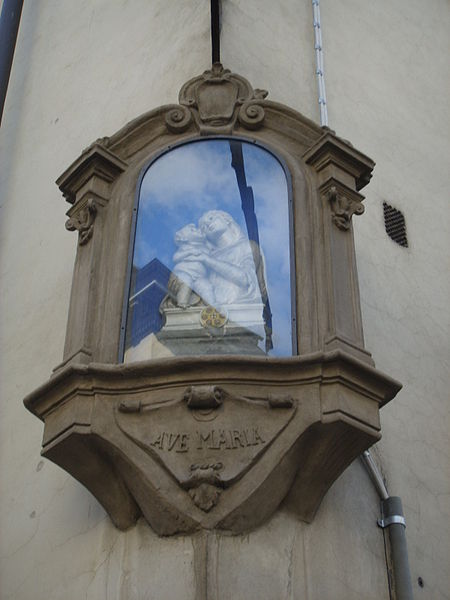Via degli Orti Oricellari corner of via della Scala
the tabernacles of florence
THE TABERNACLE
Madonna col Bambino
Inside the aedicule, a young, lovely three-quarter-length Madonna clasps the naked Child to her. Both figures rest on a shelled square base, in the center of which, within a roundel, is the Medici coat of arms of the Popolani branch, as indicated by the central ball charged with the vermilion cross of the Florentine People. This composition, exemplary for its simplicity and expressive effectiveness, is pervaded by a sweet feeling of maternal affection traversed by a tender vein of melancholy and, above all, is characterized by the attractive loveliness of the two figures physiognomies.
Tabernacle
The elegant aedicule in pietra serena, presumably of 18th-century execution, consists of a triangular base endowed with a cartouche where the inscription "AVE MARIA" is inscribed, as well as of a ribbed compartment at the sides of which are two pilasters supporting a curvilinear frame, in the center of which is a noble coat of arms with somewhat worn heraldic elements, but in which Ginori Lisci undoubtedly discerns the Rucellai coat of arms.
THE STREET
Via degli Orti Oricellari
The street takes its name from monumental gardens, the oricellari orchards precisely, of the residence of Bernardo Rucellai and Nannina de' Medici. The construction of the palace, and its gardens, dates back to the late 15th century. In the vicinity of the garden also took place the process of dyeing wool through ammonia and oricello, hence the name.
AUTHOR
Andrea della Robbia
(Florence 1435 - 1525) Luca della Robbia's nephew, or rather son of his brother Marco, was like him specialized in the technique of polychrome glazed pottery invented by his uncle. He brought the art of glazed terracotta to great popularity, soon becoming the head of the workshop he inherited from his uncle Luca.
The sculptor
(Florence 1435 - 1525) Andrea della Robbia's artistic output was vast. The distinctive feature of his works is the blue-white bichromy. His artifacts are widespread in churches and palaces in central and southern Italy, especially in Tuscany and Umbria. The typical features of his sacred figures were very successful.
Tibdit
The presence on the tabernacle of the Medici coat of arms of the Popolani branch suggests that it was Bernardo Rucellai and Nannina de' Medici, Lorenzo il Magnifico's older sister, who commissioned the tabernacle.
PICTURES

Tabernacle
Via degli Orti Oricellari corner of Via della Scala

Tabernacle
Via degli Orti Oricellari corner of Via della Scala

Tabernacle
Via degli Orti Oricellari corner of Via della Scala



